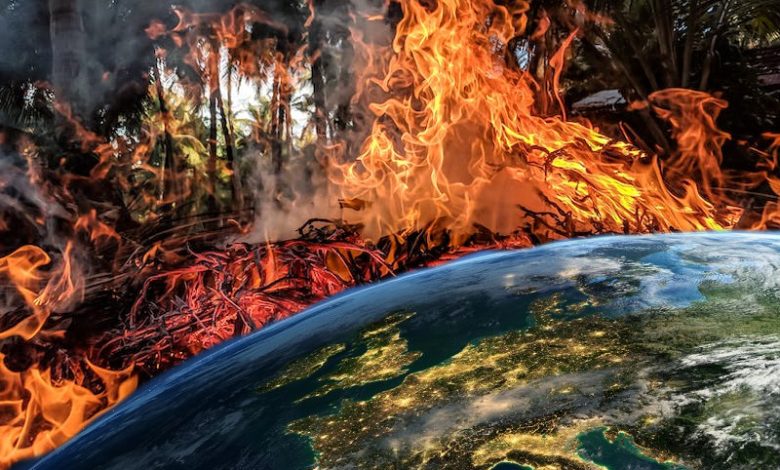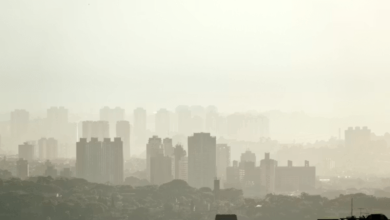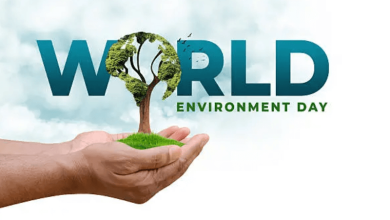
Global Warming: The Burning Issue of Our Time
The largest increase in global temperatures is occurring in the last 35 years and the consequences are becoming more severe. The oceans are warming rapidly and sea levels are rising, increasing ocean acidity as a result of carbon dioxide absorption. Additionally, global warming is causing ice sheets to shrink, and causing damage from fires, floods, and other extreme weather events.
These unpleasant changes are threatening the livelihoods of people around the world and are alarming signals for the countries of the world.
Global Warming: What it is?
The term “global warming” refers to the long-term, rise in the global average surface temperature. The planet’s temperature has been rising for a long time, but it has accelerated in the last century. Our dependence on nonrenewable energy sources like coal, oil, and natural gas has increased in tandem with our population. Greenhouse gas emissions from the combustion of these fuels include carbon dioxide, methane, and nitrous oxide, all of which contribute to global warming.
The greenhouse effect is the result of man-made activities, pollutants build up in the atmosphere, where they feast on photons and prevent harmful rays from the sun from reaching the ground. Some greenhouse gases occur naturally, but the concentration of these gases in the atmosphere has been significantly increased due to human activities, causing the current crisis we call global warming.
Also Read: Climate Crisis: Catastrophe Beyond Imagination
Notable guidelines related to global warming:
- By March 2023 the planet is 1.22 degrees Celsius warmer than pre-industrial levels.
- 80% of greenhouse gas emission is created by 20 wealthy developed nations.
- Through awareness and collective efforts, the temperature can be prevented from rising more than 1.5 degrees Celsius.
The issue of global warming automatically makes us reflect on climate change, although these are interconnected, they are slightly different things.
Differences between global warming and global warming and climate change:
The phenomena of global warming and climate change both are uncertain for the planet but they are different.
Climate change is the long-term change in the typical weather pattern that has been responsible for the climate on the Earth. Climate change is the problems caused by increasing temperatures such as extreme weather conditions and rising sea levels. But global warming is the rise of average global surface temperature.
The Causes and Effects of Global Warming:
We now know that global warming is the result of human activities that produce greenhouse gases such as burying fossil fuels, deforestation, agricultural activities that impact grasslands, etc.
A slight increase in temperature poses many threats to human life and the environment such as water scarcity, severe waves, floods, and other natural disasters and problems to the ecosystem.
Apart from this, the melting of glaciers, rising sea levels, increasing risks in coastal areas, forest fires, storms, heavy rains, drought, etc. are other signs of increasing global warming.
As temperatures continue to rise, habitats are disappearing, and ecosystems are changing, leading to loss of species diversity. Global warming is not only threatening the planet’s biodiversity, but it is also having significant impacts on public health, such as heat-related illnesses, breathing problems, and other health problems, especially among vulnerable populations.
As time passes we learn more about global warming’s effects, and every year we discover new evidence of its devastating impact on the planet.
Who’s Responsible for Global Warming?
See the trend – what the world says about it
An organization named Carbon Brief said in its report that the United States is the most responsible country for the climate crisis. They historically emit 20% of all emissions.
We are not opposed to the view presented by Carbon Brief, but our stance is clear “A single country cannot be blamed for all global disasters”, yes the vast majority of greenhouse gases originate from a very small number of countries. It happens. 80% of greenhouse gas emissions are caused by 20 developed countries.
UN highlighted that the richest 1% of the world’s population is larger than the combined emissions of the poorest 50%. Oxfam also supported this viewpoint.
Global Warming: How to Stop?
The issue of global warming will worsen if we do nothing. We need to address this issue soon. We need to invest in a global transition to clean energy and cut greenhouse gas emissions drastically if we are to effectively combat climate change and global warming.
Furthermore, although individual acts matter, tackling the underlying causes and consequences of global warming requires strong international cooperation as well as efficient policies. Limiting carbon pollution and moving quickly away from fossil fuels and towards cleaner energy sources is critical. As long as we don’t act now, setting goals for the far future won’t help.
Scientists warn that if we don’t cut our emissions, climate change and global warming could kill over 250,000 people annually, causing widespread migration and displacement, and impoverishing up to 130 million people in the next ten years.
Join us to stay updated with every topic of “Eco-Discussion”



